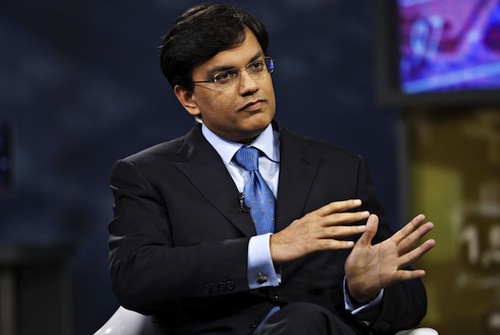Adam Liptak at the New York Times alerts us to a possible Supreme Court review of the settlement in Lane v. Facebook, a class-action suit alleging that Facebook violated users’ privacy with the Beacon feature. The Beacon feature, now discontinued, automatically posted video rentals and purchases to users’ feeds in a feature that could never have angered them in any foreseeable way. That’s not important now. What’s important is that plaintiffs’ lawyers in Lane v. Facebook negotiated a settlement in which members of the class got nothing, Facebook had to give $6.5 million to a new charitable foundation it would partly control, and plaintiffs’ lawyers got $2.3 million. Measured outrage after the jump.
Category Archives: Class Warfare
Guilty pleasure: Rich Kids of Instagram
You are looking at a gold-plated AK-47, sold by Versace for $9,000. There are at least four layers of signifier going on in that photo: the ancient—perhaps even oldest—significance of gold, the postwar guerrilla icon that is the Kalashnikov, and the increasingly decadent brand of Versace. What’s that you say? Only four? Oh, right—the fourth layer of signification comes from knowing that this gold-plated assault rifle, along with the collection of sunglasses and watches surrounding it, belongs to a child. The picture is from Rick Kids of Instagram, a Tumblr you should visit immediately if you enjoy self-righteous resentment.
Senate kills Buffett Rule
Just in time for tax season, the Senate has blocked the so-called Buffett Rule, which would have required households earning more than $1 million annually to pay an effective tax rate of 30%. The vote went off at 51 for and 45 against, which means it’s dead in the new, everything-will-be-filibustered Senate. Meanwhile, the party whose ideology naturally aligns with stalemate pushed its own bill to allow business owners to deduct 20% of their income next year—a plan whose benefits would go overwhelmingly to high-income households, according to the Tax Policy Center. Also meanwhile, I paid my taxes. I gave back 29% of my income from 2011, as compared with the Obamas’ 20.5% and the Romneys’ estimated 15.4%. I am the only person in this paragraph who is not a millionaire.
Median net worth of Congress increases 15% since 2004
“I don’t see myself as a man of great wealth,” says Arizona representative and millionaire Ed Pastor in this article from the Times. “To say that I’m enjoying a millionaire’s lifestyle—well, I can tell you, I guess a millionaire’s income doesn’t go very far these days.” He’d be surprised what it’s like to be a thousandaire. The median income for Americans not elected to Congress sits around $31,000 a year. Net worth—assets minus debt, which means house minus loans for a lot of people and World of Warcraft character minus rent for the rest of us—medians at $100,000, and it’s dropping. Even the richest 10% of Americans have stagnated since George Bush Jr. vied for the presidency against John Kerry, and the overall net worth of Americans has dropped eight percent. Yet over the same period, the median worth of a member of Congress has increased 15%. That seems like a troubling indicator.
Citigroup’s disappearing plutonomy report
In my surprisingly arduous attempt to find 2007 revenue figures for Citigroup yesterday, I ran across something called the plutonomy report. Back in 2005, Ajay Kapur—then CFA of Citigroup—produced this industry note describing investor and consumer behavior in economies where a very small portion of the population controls a very large portion of national wealth. He called such economies plutonomies. “The world is dividing into two blocs,” Kapur writes—“the plutonomy and the rest.” He lists the United States, Canada, Australia and the UK among the plutonomy nations and puts continental Europe and Japan “in the egalitarian bloc.” Here in plutonomy country, “the rich absorb a disproportionate chunk of the economy” and therefore hold primary influence over aggregate indicators like savings rates, account deficits, consumer spending, et cetera. In 2006, Kapur produced a follow-up to the first plutonomy report, in which he argues that plutonomy countries,
have seen the rich take an increasing share of income and wealth over the last 20 years, to the extent that the rich now dominate income, wealth and spending in these countries…the tech whizzes who own the pipes and distribution, the lawyers and bankers who intermediate globalization and productivity, the CEOs who lead the charge in converting globalization and technology to increase the profit share of the economy at the expense of labor, all contribute to plutonomy.
It’s a controversial argument, especially from a bank that defrauded consumer investors to enrich itself and a billionaire hedge fund manager the following year. People would probably get angry about it, except the second plutonomy report has been steadily disappearing from the interent since it leaked.





